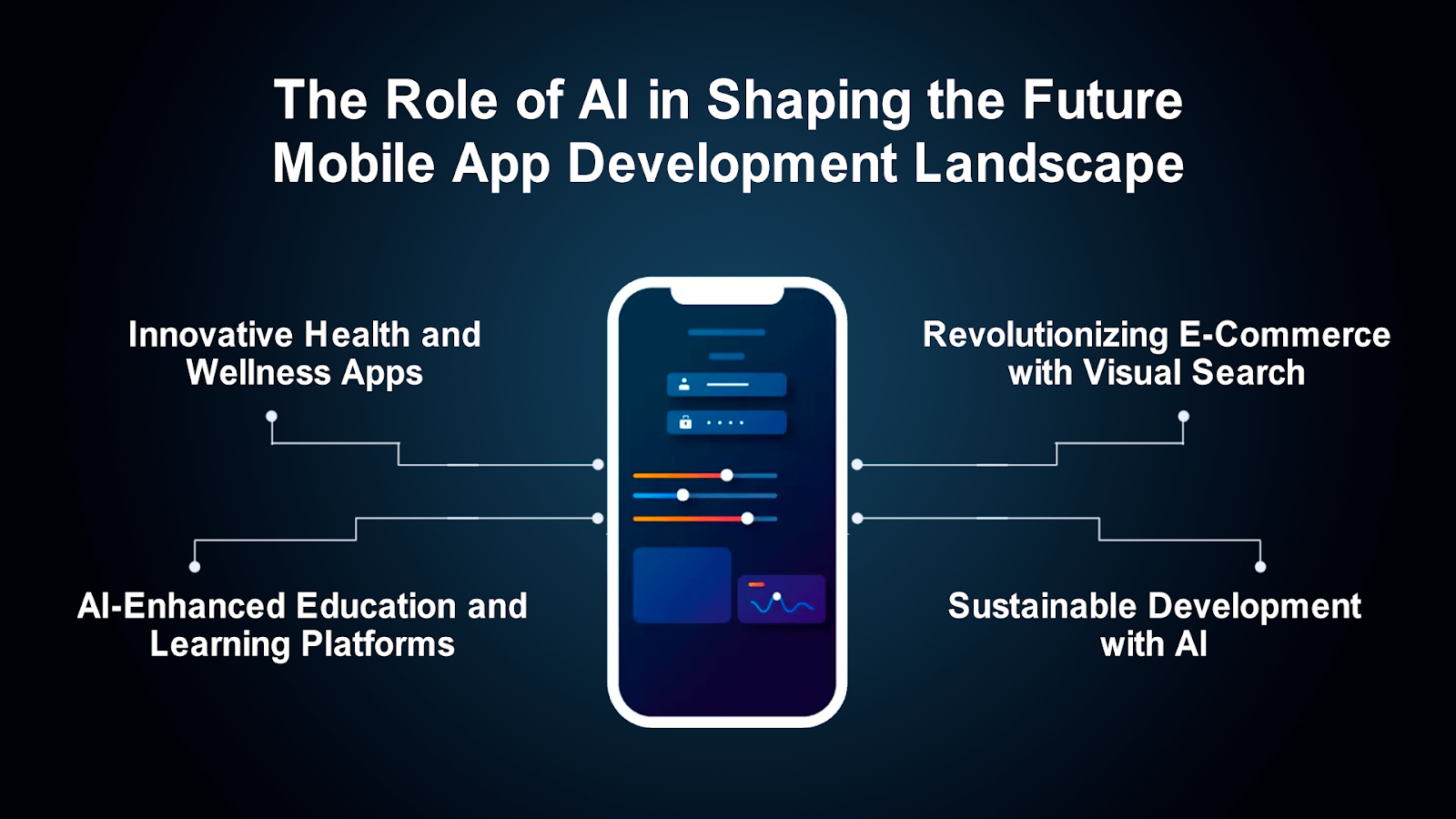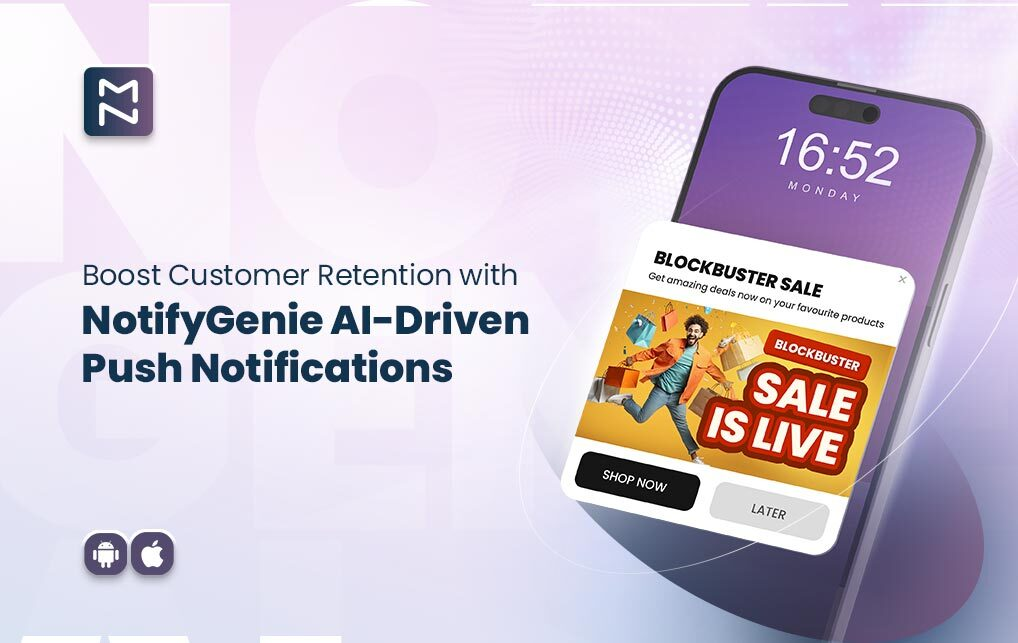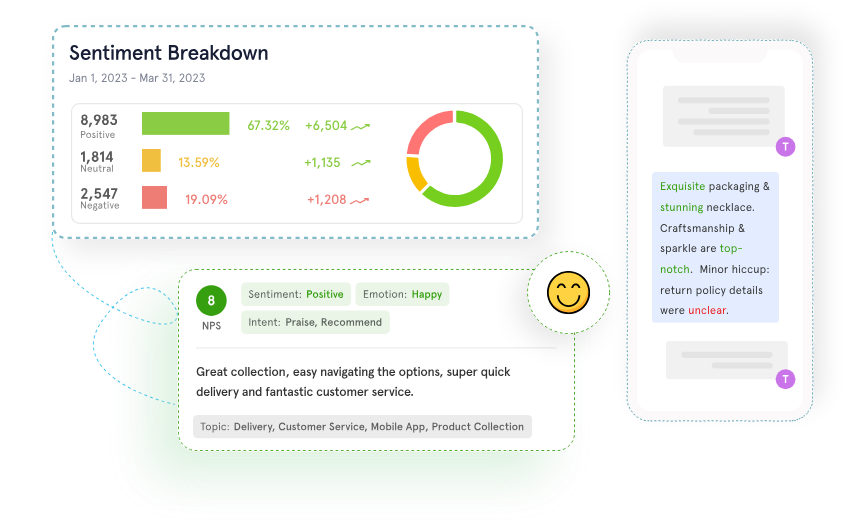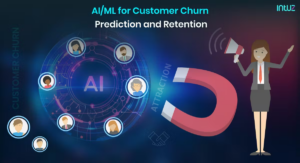blog
How AI-Powered Features in Apps Can Improve User Retention

Have you ever downloaded a new app, used it once or twice, and then stopped using it? Many people try new apps, but few stick with them.
Indeed, the average app loses 77% of daily active users just three days after installation. Only a tiny portion is left by day 30, retention rates for iOS and Android typically drop to roughly 3.7% and 2.1%, respectively.
So how can app creators keep users coming back? One of the most powerful strategies is adding AI-powered features. These features can make apps smarter, more personal, and more responsive.
Here, we’ll read on to learn how AI-powered features improve customer retention in apps.
What Do “AI-Powered Features” Mean in Apps
The term “AI-powered” here refers to applying machine learning and natural language processing that learns how to analyze user behavior in mobile apps to predict preferences, surface content and products, and automate routine tasks, all without human intervention. These characteristics evolve with every user.

Source: Addevice
Some common types:
- Personalization and recommendations (next best content, product suggestions)
- Predictive nudges (reminders, what users may want)
- Conversational agents / smart chatbots.
- Onboarding and Guidance Adaptive.
- Smart notifications and in-app messaging.
- Predicting behavior and churn.
An expert mobile app development company can incorporate these AI capabilities into an app to give the impression that it is a well-known personal assistant.
How AI Features Boost User Retention
1. Personalization Content and Recommendation: Keep User Engaged
No one prefers a one-fits-all experience. AI excels at delivering a personalized experience to every user. Users are more engaged and understand when an app displays content, features, or products based on their previous behavior.
For example, AI champions are services such as Netflix and Spotify. They check the programs you watch and the music you listen to. Their AI will then recommend other movies and music you are likely to like.
It implies that you have something new and interesting every time you open the app. This leaves you wanting to go back and revisit it again and again to see what it has revealed for you.
Within delivery or e-commerce applications, AI can recommend items that a user may wish to reorder or display deals for. Within fitness and health applications, AI can suggest exercises, diets, or objectives based on current trends.
These hints suggest that you prefer this lower-friction content and are more likely to continue browsing.
2. Smart Notification and Predictive Prompt

Source: MegaNative
Push notifications with Artificial Intelligence (AI) are a great way to enhance the effectiveness of the app by utilizing AI to predict optimal times to send push alerts, thereby improving user engagement and reducing app uninstalls.
Consider e-commerce apps, for example, which experience an increase in user re-engagement when AI push notifications are used.
With user behavior patterns being tracked, AI ensures that notifications are timely and relevant, thereby leading to increased interaction rates and improved user retention.
In onboarding, AI can vary the speed and order of steps based on how fast the user completes them. Tools like CleverTap do this for onboarding flows.
3. Gamification and Interactive Features
Artificial Intelligence (AI) is increasing user engagement in mobile apps by creating both interactive experiences and gamification features.
On the one hand, educational applications utilize AI to dynamically adjust the level of content difficulty based on a user’s performance, thereby maintaining a desired level of engagement.
This will make the learning process enjoyable, and users are rewarded for using it consistently. By incorporating AI-based gamification techniques, developers can create gameplay that encourages users to revisit it repeatedly.
4. Chatbots and Conversational Agents
AI chatbots and conversational assistants make a significant contribution to holding users’ retention. They provide immediate help when users run into problems or need data, reducing frustration and preventing app quits.
The app provides users with quick, clear answers instead of requiring them to wait for emails or browse through long help menus. Chatbots, which are accessible 24/7, enhance the client experience by cutting down on wait times and providing constant assistance.
A prime example is Character AI, which had a user retention rate of approximately 33% even 29 days post-download, indicating the power of chat-based interaction.
Natural language features like voice commands and text inputs go beyond simple chat and let users do tasks like viewing account information and making appointments with ease.
When properly implemented, chatbots shift user experience from static to dynamic, building brand loyalty and long-term retention.
5. Sentiment Analysis and User Feedback

Source: Zonka Feedback
Mobile apps can analyze and process user feedback and reviews through using Artificial Intelligence (AI). Using AI-based sentiment analysis, they are capable of deriving actionable insights on what is keeping their users satisfied and what needs to be changed.
For instance, AI can flag recurring issues or frequently used features to enhance these areas. After these insights were put into practice, CSAT increased by 9.44% and ticket sales decreased by 50%.
6. Forecasting and Churn Prediction


Source: Intuz
AI can forecast which users are likely to churn and actively re-engage them. From usage behavior (fewer opens, shorter sessions), the system flags “at-risk” users.
The app can then initiate a retention activity, such as a unique message, reward, or tutorial refresh. Some AI retention solutions do just this, assisting teams to act before a user disappears.
Effectively, the app acts as a “watcher” that detects when attention is waning and intervenes.
Use Cases of AI in Various Industries for Mobile Apps
- Retail and E-commerce: The conversion rates have been increased due to AI-personalized shopping experiences and offers.
- Healthcare: AI-based appointment booking and health monitoring can enhance patient interaction by providing timely reminders and personalized health information, thereby boosting engagement.
- Finance: AI-based tools with fraud detection enable users to have confidence in them by offering them personal financial guidance and making financial transactions safe, hence retaining them.
- Education: AI-based adaptive learning experiences lead to improved student performance by delivering content in a learning style and at a pace tailored to each student.
- Travel: AI features like itinerary suggestions and language translation can enhance the user experience by providing a personalized travel plan and eliminating language barriers.
These are some of the ways AI is utilized to address engagement challenges in various industries.
Challenges and Things to Remember
Applying AI in apps is powerful, yet it must be done judiciously. A decent mobile app development company will always be mindful of these critical points:
- User Privacy: AI requires data to learn, yet user data must be protected and private. Apps must clearly communicate what data they collect and how it will be used.
- Ensure Accuracy and Relevance: Only when AI models can be optimized can they provide accurate and relevant user experiences. Inaccurate values may be predicted, leading to user dissatisfaction.
- Balance between Automation and Human Touch: The human element of the user experience is also preserved, ensuring a personalized experience. Excessive dependence on automation can be impersonal.
Summary & Closing Thoughts
AI is not a magic trick. It is a useful technology that addresses actual issues to the users of the apps. With the ability to personalize, provide instant assistance, smart notifications, and enhanced security, AI-based features make apps more useful in our lives.
You do not even need a reason to abandon an app that really helps you, saves you time, or makes you happy. You have every reason to stay. With the further advancement of AI technology, we will be able to see our favorite apps being even more empathetic and helpful, making the experience of all people even more pleasant.
Any team, whether it is a single developer or a big mobile app development company, should aim to create tools that are actually useful to people. With careful consideration of the needs of the users by applying AI, they can develop apps that are not only downloaded by people, but also embraced by them as part of their lives.
